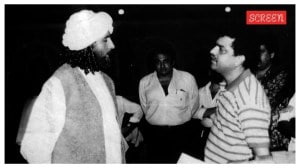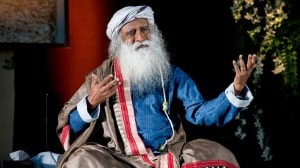As Murdoch rides in,paper bows out,with sorry,thanks
The final edition included an apology to readers for the newspaper losing its way.
Reporters leaving the newsroom of The News of the World for the final time on Saturday night were told by the police to leave their desks,including their notebooks,untouched. They were allowed to keep only their cellphones.
With that,the 168-year-old News of the World came to an end,brought down by a scandal over the interception of voicemail messages that is rocking Britains media,its police force and government,and threatens the empire of a previously unassailable mogul. The final edition included an apology to readers for the newspaper losing its way.
As staff members filed out one-by-one,the newspapers editor Colin Myler reprised a tradition that goes back to the glory days of British journalism,a time before voicemail,when storied publications like The News of the World were based around Fleet Street in the City of London and reported on Britains sprawling empire. He stood at a desk and struck it with a ruler as he looked each staff member in the eye,an emphatic farewell known as banging out.
Several staff members said that they expected the police would soon turn their beloved newspaper into a crime scene as investigations into the hacking scandal gained momentum.
In the pub around the corner,where drinks were free for those from the closing paper,employees in News of the World T-shirts cheered as their own interviews were replayed on television tuned to the Sky News channel.
No one here had anything to do with hacking, said one journalist who did not want to be identified for fear of jeopardising employment prospects with News International,the owner of The News of the World as well as other national newspapers.
There was widespread disdain for News International executives,especially the chief executive Rebekah Brooks,who most said had sacrificed their jobs to save her own. By the end of the evening,Brookss name had become a pejorative. And one staffer said expenses for this week had reached $4,000,a farewell gesture.
However,flying finally into London Sunday,Rupert Murdoch again stood solidly in Brookss corner. TV footage showed the News Corp CEO being driven into the east London offices of News International seated in the front passenger seat of a red Range Rover with a copy of the last issue of The News of the World in his hands.
He left after about an hour and a half and returned to his London apartment,where he met Brooks. When they emerged from the residence after about an hour together for a walk to a nearby hotel for a meal,it was with smiling faces for the pack of photographers and camera crews gathered outside. Murdoch had his hand on Brookss back another apparent show of support for his executive.
While rancour runs high,vendettas at the pub where The News of the World staff were gathered was forgotten when crisp,freshly printed stacks of the final edition arrived around Saturday midnight. Thank you & Goodbye read the headline,printed over smaller images of notable front covers. Above the editorial were the defiant words worlds greatest newspaper,1843-2011.
Many headlines captured the swashbuckling swagger,the exuberant love of words,the hunger for a scoop,that had characterised Britains free-wheeling tabloid culture before it was irreparably tainted. Chief Of Defence In Sex And Security Scandal. Duke And The Hooker. Runaway Bishop Confesses All.
It may have been grandly sustained by an eternal cast of randy vicars,misbehaving politicians and adulterous celebrities,wrote the critic DJ Taylor,in the Independent newspaper,but The News of the World was inexorably a part of Britains sense of collective identity.
Despite an increased print run of five million,copies of the paper could not be found at several newsstands. Gregg Johns,28,buying two copies in a convenience store near the newspapers headquarters in Wapping,east London,said he wanted a souvenir. Well, he said,shrugging,its The News of the World,isnt it?
The 8,674th edition apologised for letting the papers readers down,but stopped short of acknowledging recent allegations that its journalists paid police for information.
We praised high standards,we demanded high standards but,as we are now only too painfully aware,for a period of a few years up to 2006,some who worked for us,or in our name,fell shamefully short of those standards, read a full-page editorial in the paper. Quite simply,we lost our way. Phones were hacked,and for that this newspaper is truly sorry.
News International declined to comment on Murdochs movements or plans while in the UK. Closing down the News of the World,which was launched October 1,1843,was seen by some as a desperate attempt by the media mogul to stem negative fallout and thus save his 12 billion-pound deal to take over satellite broadcaster British Sky Broadcasting.
As the News of the Worlds final issue went to press,Assistant Police Commissioner John Yates expressed his extreme regret that he did not act to reopen police inquiries into phone hacking two years ago. In an interview with The Sunday Telegraph,he said its clear I could have done more.
In its last edition today,the News of the World carried a 48-page souvenir pullout section highlighting the papers scoops and its coverage of big moments in history. The paper has been praised for its role in getting a sex offender law passed in Britain. Sarahs Law was named after 8-year-old British girl Sarah Payne,murdered in 2000 by a paedophile.
For well over a century and a half,the tabloid had became part of the fabric of Britain,as central to Sunday as a roast dinner,the editorial in the paper noted.
We lived through history,we recorded history and we made history from the romance of our old hot-metal presses right through to the revolution of the digital age, the editorial said. We also recorded the death of Queen Victoria,the sinking of the Titanic,two world wars,the 1966 World Cup victory,the first man on the moon,the death of Diana… the list goes on… But we also recorded and most often revealed the great scandals and celebrity stories of the day.
Phones were hacked,and for that this newspaper is truly sorry, the editorial added. There is no justification for this appalling wrong-doing. No justification for the pain caused to victims,nor for the deep stain it has left on a great history… Yet when this outrage has been atoned,we hope history will eventually judge us on all our years.
The paper also welcomed the two public inquiries announced by Cameron,one into the police handling of the case and another into the ethics and standards of the Press. However,it did not agree to the move to disband the Press Complaint Commission (PCC),saying it would be a disaster for British democracy and for a free press.
To its 7.5 million readers,the paper said: Thank you for your support. Well miss you more than words can express. Farewell.
On the back page,the edition carried quotes from British author George Orwell,an admirer of the paper. Also included were quotes of Jeannie Hobson,a loyal reader from Lymington,England,which read as an epitaph. I cannot imagine Sundays without you, the 68-year-old Hobson said. I will always remember the News of the World for the good things you have brought to light. Im sad to say goodbye to my Sunday favorite.
NYT with Agencies



- 01
- 02
- 03
- 04
- 05




























